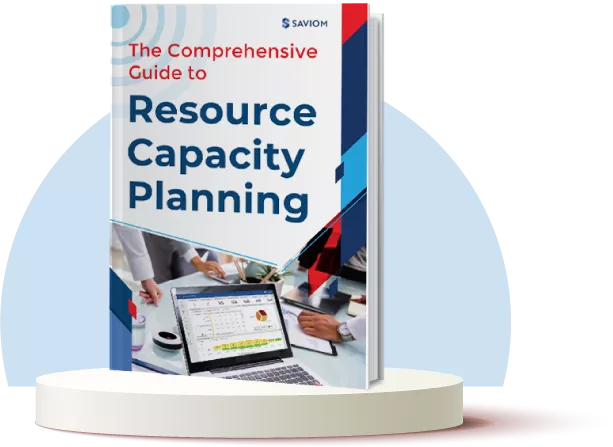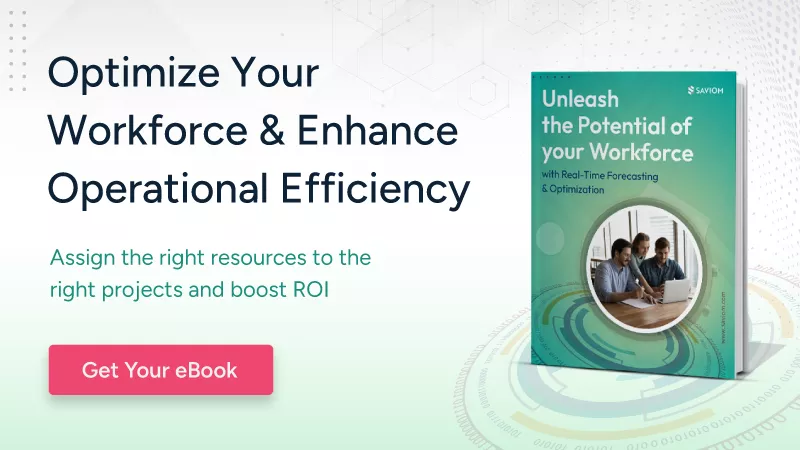“According to Research & Markets survey, the talent management market is projected to grow at a CAGR of 10.55%, reaching $30.19 billion by 2030.”
This trend underscores the increasing importance of effective talent management as companies recognize the vital role employees play in driving productivity, efficiency, and profitability. As a result, the role of a skilled talent manager is more crucial than ever.
Talent managers are pivotal in aligning talent management practices with business goals. They are responsible for implementing effective career development and retention strategies as well as ensuring employees remain motivated and engaged. Their work not only enhances individual performance but also drives organizational growth and adaptability in an ever-evolving business landscape.
In this blog, we will be reading about the role of a talent manager along with their key skills and responsibilities in an organization.
Let’s begin!
Who is a Talent Manager?
In the corporate world, talent managers are responsible for nurturing an organization’s workforce. They oversee various aspects of employee management, including recruitment, onboarding, performance evaluation, training, and career development.
Talent managers ensure that employee skills and goals align with organizational objectives. They also focus on fostering a positive work environment that contributes to higher employee engagement and satisfaction.
Now that we know who a talent manager is, let us move on to the seven crucial skills they should possess.
Read more: What Are the Benefits of Talent Management?
7 Must-Have Talent Manager Skills
A skilled talent manager is crucial to managing the workforce potential in a firm. Given below are a few essential skills of talent managers that help them meet their goals:
Strategic Thinking
Strategic thinking is one of the most important skills for these managers as it helps them develop long-term talent management practices and policies that align with the company’s goals. It enables talent managers to anticipate future skill requirements to meet the evolving business needs and market dynamics. As a result, they are able to proactively create robust recruitment, training, and development plans to cultivate a future-ready workforce.
Read more: What is Strategic Workforce Planning, and Why it is Important?
Leadership Skills
Strong leadership skills are vital for talent managers because they empower them to effectively guide and inspire the workforce while fostering a positive company culture. It enables them to handle complex team dynamics such as conflict resolution, change management, and employee development. Moreover, strong leaders can effectively communicate with employees, provide constructive feedback, and support professional growth, which are all critical for building a resilient and adaptable workforce.
Organizational Skills
Effective organizational skills, which involve the efficient use of time, space, and resources, are at the core of a talent manager’s role in a firm. Thus, it is crucial for them to be adept at prioritizing, organizing, and delegating tasks to ensure their successful completion. These skills also enable them to maintain composure and work effectively in fast-paced, high-pressure environments that often demand meeting strict deadlines. Furthermore, it empowers talent managers to make effective decisions that help companies navigate setbacks and delays.
Communication & Collaboration
Communication and collaboration are critical skills for every talent manager because they facilitate effective interaction with various stakeholders, including employees, executives, and external partners. Good communication skills enable them to clearly articulate expectations, provide constructive feedback, and ensure that employees understand the company’s objectives. On the other hand, collaboration skills allow talent managers to effectively coordinate with hiring managers, department heads, and HR professionals to develop comprehensive talent management programs.
Technological Knowledge
Talent managers need to have technological knowledge as it enables them to efficiently leverage digital tools and platforms to streamline internal workflows and processes. This technical expertise helps them analyze employee data to identify unique patterns, make informed decisions, and develop robust strategies to enhance employee productivity and satisfaction. Furthermore, staying abreast of technological advancements positions talent managers as strategic partners in driving innovation and digital transformation within the organization.
Read more: Technology Trends That Will Transform the Business Landscape
Coaching & Mentoring
Coaching and mentoring are essential soft skills for talent managers. These skills enable talent managers to guide employees in developing their abilities, improving performance, and achieving career goals through personalized support and feedback. This approach helps employees identify their strengths and areas for improvement while fostering a culture of continuous learning and growth within the organization.
Negotiation Skills
Negotiation skills are vital for talent managers to secure favorable outcomes in salary discussions, resolve workplace conflicts, and manage employment contract terms. This ensures that both the organization and employees benefit, promoting a harmonious work environment. Additionally, strong negotiation skills enable talent managers to build and maintain relationships with stakeholders and contribute to the overall success.
Now that we know the skills required for a talent manager, let us see their responsibilities in the next section.
7 Key Talent Manager Responsibilities
Here are the seven major responsibilities of a talent manager in an organization:
Identifies and Hires Skilled Professionals
A talent manager’s key responsibility is to find and hire skilled professionals to drive the company’s growth. This involves collaborating with senior executives to understand the firm’s strategic goals and talent requirements, i.e., skills, expertise, experience, etc.
Then, they must create a compelling recruitment strategy that includes developing compelling job descriptions and utilizing various sourcing channels, such as social media, job portals, professional networks, etc. By conducting thorough interviews and assessments, they ensure the organization acquires the right talent to meet its objectives.
Read more: How to Create an Effective Hiring Strategy?
Facilitates Smooth Onboarding for New Employees
A well-structured onboarding process is crucial for familiarizing new employees with their roles and the organizational culture. Talent managers should create a comprehensive onboarding plan that outlines key activities, such as paperwork, orientation sessions, training programs, and social events.
This plan may include team-building exercises and company-wide meetings to help new hires grasp the corporate ethos. Additionally, talent managers can assign a mentor or buddy to guide new hires, answer questions, and help them settle in.
Develops Career Paths & IDPs for Employees
This involves creating clear career progression routes that align with organizational goals and employees’ career aspirations. Talent managers work with employees to assess their strengths, weaknesses, and objectives, then design personalized IDPs outlining the skills, training, and experiences needed for advancement.
For example, an employee aiming for a leadership role should have an IDP that includes leadership training, project management experience, and mentorship opportunities. This approach boosts employee satisfaction and engagement and creates a more skilled workforce, resulting in long-term organizational profitability and competitiveness.
Read more: How Can Retraining/Upskilling Future-proof Your Workforce?
Creates Succession Plans for Top Performers
“A study of Sigma Assets states that 48% of leaders understand that succession planning has significant cultural, operational, and financial benefits.”
Another vital responsibility of talent managers is creating succession plans for high-potential resources. This process involves preparing candidates for greater responsibilities and ensuring key positions are filled as needed without resorting to external recruitment.
Talent managers identify top performers through performance evaluations and assessments and prepare them for future roles by providing targeted training. This approach not only protects the company from critical role vacancies but also fosters internal growth and maintains a steady pipeline of skilled leaders.
Frames Strategies to Improve Employee Engagement and Retention
“According to a study by CIPD, seeking greater job satisfaction, better work-life balance, and improved pay or benefits were the top reasons for employees leaving their jobs.”
To prevent burnout and reduce turnover, talent managers must frame and implement effective employee engagement programs. They can start by developing recognition and reward systems, such as bonuses, public acknowledgments, or employee of the month awards, to appreciate top performers.
Further, talent managers can host various team-building activities, such as workshops, retreats, and social events, to foster camaraderie and collaboration among team members. These initiatives create a positive work culture that boosts employee morale, enhances job satisfaction, and improves retention.
Implements Diversity, Equity, and Inclusion Initiatives
“A LinkedIn study states that businesses with DEI teams are 22% more likely to be perceived as leading companies with exceptional talent.”
To drive organizational excellence and foster an inclusive work culture, talent managers should implement various DEI initiatives. They can develop policies such as inclusive hiring practices, anti-discrimination guidelines, equitable compensation structures, and supportive work-life balance initiatives.
For instance, they could introduce blind recruitment to remove biases related to gender, ethnicity, or age and create mentorship programs to support the career advancement of underrepresented employees. All of this will help create an optimized workforce.
Read more: What is Diversity in Project Management and its Importance?
Ensuring Adherence to Employment Laws & Regulations
The final responsibility of a talent manager is to guarantee compliance with state and federal employment laws and regulations. To achieve this, talent managers must stay informed about the latest labor laws and ensure these are applied within the organization.
By conducting regular audits, talent managers can monitor key areas such as recruitment processes, workplace safety, salaries and wages, and employee benefits. This proactive approach helps prevent issues like discrimination and harassment, thereby protecting the organization’s reputation and minimizing legal risks.
Conclusion
A skilled talent manager plays a crucial role in executing effective talent management strategies that attract, nurture, and retain top talent. By mastering the outlined skills and responsibilities, talent managers can become highly proficient in their field and significantly contribute to the organization’s growth and overall success.
The Glossary
Read more: Glossary of Resource Workforce Planning, Scheduling and Management
The SAVIOM Solution
SAVIOM is undoubtedly the market leader in offering the most powerful and configurable Enterprise Resource Management Solution. Having more than 20 years of experience, this Australian-based MNC has a global presence in over 50 countries. It is also popular with more than 100 customers and helps them to achieve their business goals. SAVIOM also has products for project portfolio management, professional service automation, and workforce planning software which can be easily customized per business requirements.









